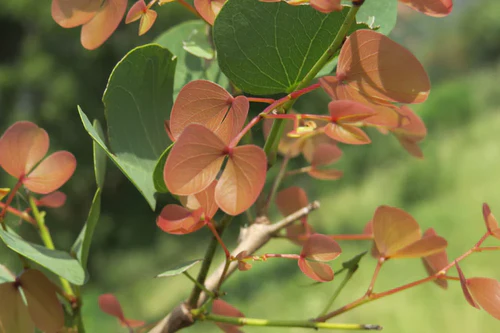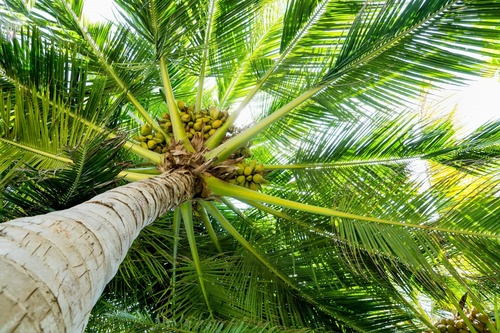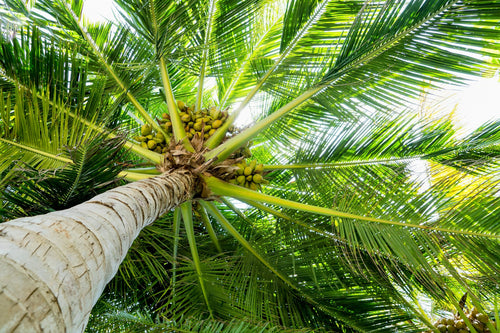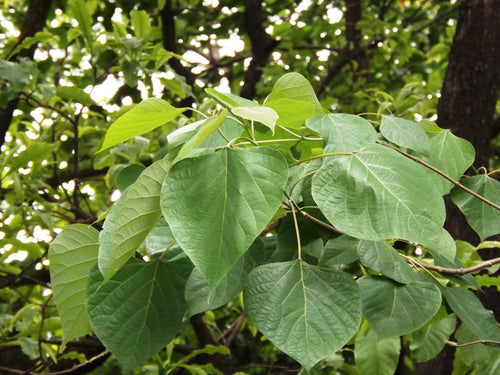Koshiqa’s Agroforest Initiative: Nurturing Nature for Its Subscribers
Koshiqa, a vibrant step tracker fitness community, has organized its tree plantation initiative in agroforests, a unique project dedicated to its subs Read more
Plantation Site Gallery
Project Update 3

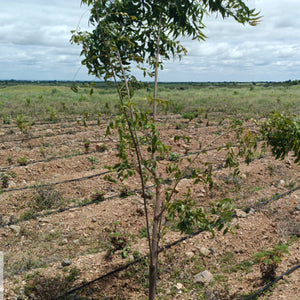
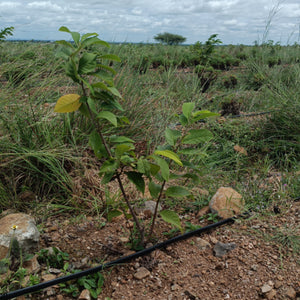
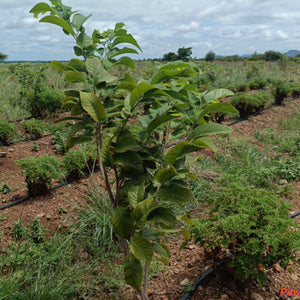
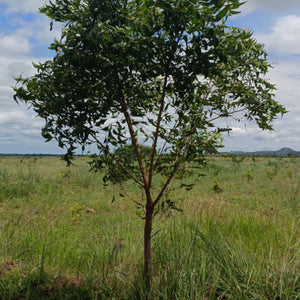
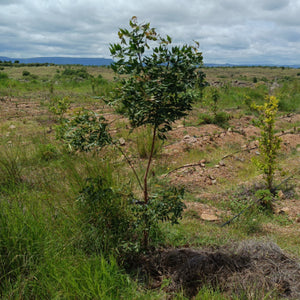
Project Update 2
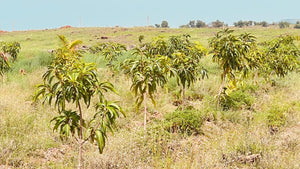

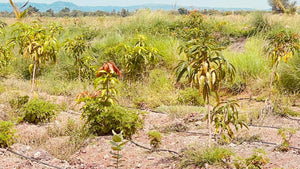
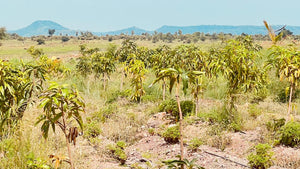
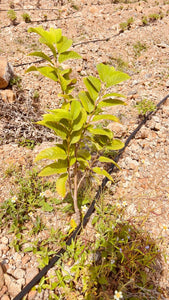
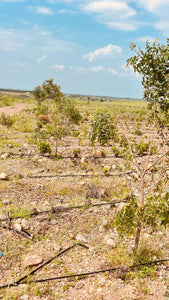
Project Update 1
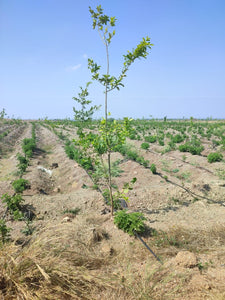
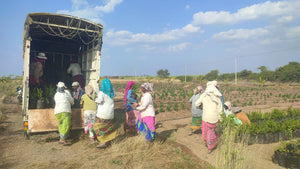
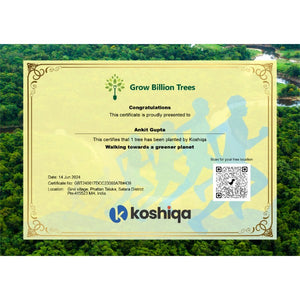
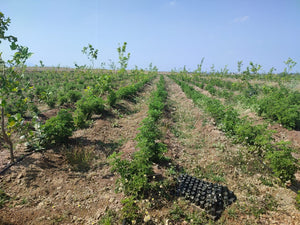
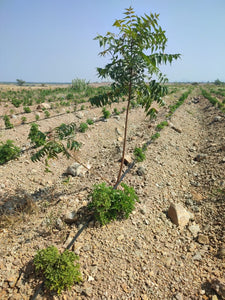
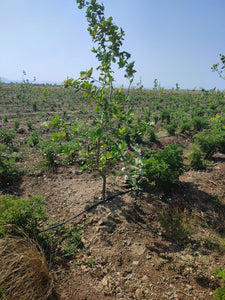
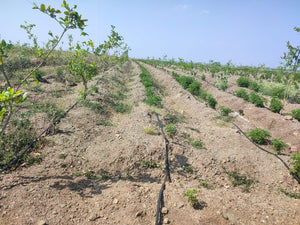
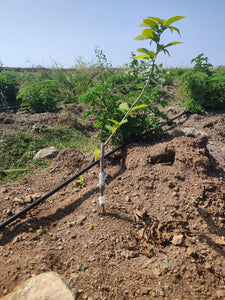
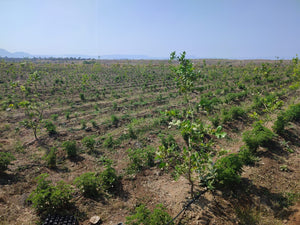
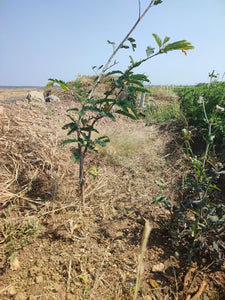
Digital Forest
Forest with 19,717 Trees planned
Want to plant Trees as a Gift now?
Plant a Tree @ 299Koshiqa’s Agroforest Initiative: Nurturing Nature for Its Subscribers
Koshiqa, a vibrant step tracker fitness community, has organized its tree plantation initiative in agroforests, a unique project dedicated to its subscribers, where each tree represents a meaningful stride towards sustainability. Under the “Each One, Plant One” commitment, Koshiqa plants trees in agroforestry settings on behalf of every subscriber, merging the benefits of reforestation with sustainable land use practices. Through this initiative, subscribers can feel closely connected to Koshiqa’s green mission as each step they take contributes to tree planting, enhancing biodiversity, community well-being, and environmental health. Koshiqa’s dedication to fitness and nature goes hand-in-hand, empowering its community to engage in an impactful, eco-friendly movement, one step and one tree at a time.
Tree Plantation Date
29th August 2024
Plantation Location
Girvi Village, Phaltan Taluka, Satara District, PIN-415523, Maharashtra
Trees Planted
Total Count: 19717
Species: Teak, Drumstick, Coconut
Forest Type: Agroforest
Koshiqa’s tree plantation initiative in agroforest is a dedicated effort to blend sustainability with community engagement. By planting trees in agroforestry systems, the initiative not only enhances green cover but also supports local ecosystems and sustainable land management. Each tree is planted on behalf of Koshiqa’s subscribers, turning their support into a lasting environmental impact. This project showcases Koshiqa’s commitment to nurturing nature, promoting biodiversity, and creating a positive ecological footprint, all while fostering a stronger connection between subscribers and the environment.
Advantages Of Agroforest
The agroforest planted by Koshiqa offers numerous advantages, combining environmental, social, and economic benefits:
Enhanced Biodiversity
Agroforestry promotes a rich and diverse ecosystem by incorporating a variety of native tree species, each playing a unique role in supporting wildlife habitats and boosting overall biodiversity. Native trees provide shelter and food sources for various animals, insects, and birds, contributing to a thriving ecosystem. The diversity of flora in agroforests creates habitats for different species, allowing them to coexist and helping maintain ecological balance. This variety in vegetation also attracts pollinators, essential for both wild and cultivated plants, and enhances soil microorganisms, contributing to healthier and more resilient ecosystems.
Sustainable Land Use
Agroforestry promotes sustainable land use by combining forestry and agriculture in a way that maximizes land productivity while protecting the soil. Trees planted alongside crops prevent soil erosion, reducing the impact of rain and wind on topsoil. Their roots bind the soil, preventing it from washing away, which is especially beneficial on sloped lands. Over time, these trees contribute organic matter to the soil, enhancing fertility and nutrient availability for crops. The improved soil structure also aids in water retention, ensuring that the land remains resilient and productive for future generations.
Climate Resilience
Agroforestry is a powerful tool for climate resilience, as trees sequester carbon dioxide from the atmosphere, storing it in their trunks, branches, leaves, and roots. By capturing CO₂, agroforests help mitigate climate change, reducing greenhouse gases that contribute to global warming. Trees also provide shade, reducing temperature fluctuations for nearby crops and creating a more stable microclimate. This resilience makes agroforestry systems less vulnerable to extreme weather events, such as droughts and floods, thus safeguarding the livelihoods of farmers and local communities.
Economic Opportunities
Agroforestry offers valuable economic opportunities for local communities by providing resources such as fruits, nuts, medicinal plants, and timber. These products can be sold, creating additional income sources for farmers beyond traditional crops. For example, fruit trees add seasonal produce that can be harvested and sold, while timber trees, grown sustainably, offer long-term returns. Agroforestry diversifies farmers’ income streams, reducing reliance on single crops and making communities more resilient to market fluctuations. This model supports both short-term and long-term economic stability, fostering rural development.
Improved Air Quality
Agroforestry contributes significantly to improved air quality by increasing green cover, which acts as a natural air purifier. Trees absorb pollutants such as carbon monoxide, sulfur dioxide, and nitrogen oxides, along with filtering dust and particulate matter from the air. Through photosynthesis, trees also release oxygen, improving the overall air quality for surrounding communities. This enhanced air quality has direct health benefits, reducing respiratory issues and promoting overall well-being. By expanding green cover, agroforests act as a "green lung," purifying the atmosphere in rural and urban areas alike.
Community Well-Being
Agroforests provide vital green spaces that enhance community well-being by offering areas for recreation, education, and social gatherings. These spaces allow communities to connect with nature, relax, and hold activities, strengthening social bonds and encouraging outdoor interaction. Agroforests also serve as educational hubs, where locals and visitors alike can learn about sustainable farming practices and environmental stewardship. This exposure to green spaces fosters a sense of pride and responsibility among community members, improving mental health and encouraging people to support conservation efforts.
Sustainable Agriculture
Agroforestry promotes sustainable agricultural practices by integrating trees with traditional crops, enhancing yields without relying heavily on chemical fertilizers. The trees provide natural shade and wind protection for crops, reducing stress on plants and promoting healthier growth. The organic matter from fallen leaves and decaying branches enriches the soil, reducing the need for chemical inputs. This eco-friendly approach to farming supports soil health and biodiversity, leading to sustainable crop production that is both economically and environmentally friendly. By reducing chemical dependence, agroforestry also minimizes pollution, safeguarding water sources and nearby ecosystems.
Water Conservation
Water conservation is a key benefit of agroforestry, as the deep-rooted trees help recharge groundwater levels and prevent excessive water run-off. The root systems of various tree species act like sponges, absorbing water and gradually releasing it into the soil, maintaining moisture levels. This water retention helps during dry spells, ensuring that crops and plants receive a steady supply. Additionally, the tree cover reduces water evaporation from the soil, conserving valuable water resources. Agroforests thus promote efficient water management, which is essential for long-term agricultural productivity and environmental health.
Activities During Tree Plantation
During Koshiqa’s tree plantation initiative, skilled farmers took charge of planting on behalf of the company, carrying out a carefully planned agroforestry approach. In this initiative, farmers planted the selected native and resilient tree species that integrate seamlessly with agricultural crops to create a balanced ecosystem. The chosen plants were arranged to maximize soil fertility, improve water retention, and enhance biodiversity, aligning with agroforestry principles. By layering trees with existing crops, farmers contributed to building a sustainable landscape that enriches the soil and provides future income sources through timber and fruit production. This effort reflects Koshiqa’s commitment to environmental sustainability, conducted as a service for its subscribers, promoting long-term ecological benefits while supporting local farmers.
Tree Plantation Purpose
Koshiqa’s tree plantation initiative in agroforest covers several Sustainable Development Goals (SDGs) and aligns with Environmental, Social, and Governance (ESG) principles, highlighting the company’s commitment to sustainable growth and social impact:
1. SDG 3: Good Health and Well-Being
The agroforestry initiative contributes significantly to the health and well-being of local communities and Koshiqa’s subscribers by enhancing air quality and creating green spaces. Trees naturally absorb pollutants and filter air, which reduces respiratory and other health issues associated with poor air quality. Furthermore, the green spaces established through this initiative provide areas for recreation and relaxation, which are essential for mental and physical well-being. By fostering a cleaner and healthier environment, the initiative actively supports the overall health and quality of life for the community.
2. SDG 8: Decent Work and Economic Growth
This initiative drives local economic growth by creating employment opportunities in tree planting, agroforestry maintenance, and management. Local farmers and workers are engaged in various aspects of the project, providing them with fair wages and steady income. The project also promotes skill development and knowledge-sharing in sustainable agriculture and forestry, empowering communities to adopt eco-friendly practices.
3. SDG 13: Climate Action
Through tree planting, Koshiqa’s initiative directly addresses climate change by sequestering carbon dioxide, thereby reducing greenhouse gases in the atmosphere. Trees in an agroforestry system act as carbon sinks, storing carbon in their biomass and soil over long periods. This green cover also stabilizes local climates by providing shade, conserving water, and minimizing temperature fluctuations. By bolstering local climate resilience and contributing to carbon reduction, this initiative actively supports SDG 13’s mission to combat climate change and mitigate its impacts on communities and ecosystems.
4. SDG 15: Life on Land
The agroforest established by Koshiqa promotes sustainable land management, restores degraded land, and supports biodiversity. Planting a diverse mix of native tree species in harmony with crops helps restore soil fertility, enhance water retention, and reduce erosion. This sustainable approach also creates habitats for local wildlife, improving biodiversity and supporting ecosystems. Through these efforts, the initiative contributes to SDG 15’s aim of conserving terrestrial ecosystems, halting biodiversity loss, and ensuring the long-term health of the land.
5. SDG 17: Partnerships for the Goals
Koshiqa’s partnership with Grow Billion Trees has been instrumental in achieving "Partnerships for the Goals" by fostering a collaborative approach toward large-scale environmental impact. Through this alliance, Koshiqa leverages Grow Billion Trees' expertise in sustainable forestry and agroforestry practices, creating a more efficient and impactful tree-planting initiative. Together, they engage local farmers, empower communities with sustainable practices, and streamline resources to maximize reforestation efforts. This collaboration amplifies both organizations' ability to drive meaningful change, emphasizing the power of unified action in advancing global sustainability goals while fostering community involvement and environmental stewardship.
ESG's Achieved Through Agroforest
Environmental
Koshiqa’s tree plantation initiative in the agroforest concept contributes significantly to environmental sustainability. By integrating trees with existing agricultural land, the initiative promotes biodiversity, enhances soil health, and combats soil erosion. Trees in the agroforest act as natural carbon sinks, absorbing carbon dioxide and helping mitigate climate change. The diverse tree cover also supports water conservation, as root systems retain water in the soil, maintaining moisture levels and improving groundwater recharge. This commitment to reforestation and land stewardship directly contributes to long-term ecological health.
Social
Koshiqa’s initiative has a strong social impact by engaging local farmers and communities, creating job opportunities, and supporting sustainable livelihoods. By hiring farmers for plantation activities, Koshiqa provides fair wages and helps improve the local economy. The green spaces generated through the initiative also contribute to community well-being, offering areas for relaxation, education, and recreation. Moreover, this project fosters environmental awareness among community members, encouraging them to actively participate in sustainable practices and fostering a sense of shared responsibility toward natural resources.
Governance
Koshiqa demonstrates responsible governance by partnering with organizations like Grow Billion Trees and adhering to ethical and transparent practices in its sustainability initiatives. This partnership ensures that all activities align with Koshiqa’s environmental goals and the broader global commitment to sustainable development. The initiative’s clear documentation and reporting practices reinforce accountability and transparency, which are key pillars of effective governance. By incorporating these governance standards, Koshiqa builds trust with its stakeholders and ensures that its efforts are both impactful and ethically managed.
Commitment by Grow Billion Trees
Grow Billion Trees is committed to driving sustainable plantation efforts, ensuring every initiative aligns with key environmental objectives and promotes long-term ecological balance. They focus on selecting native tree species that are well-adapted to local ecosystems, ensuring a higher survival rate and stronger environmental impact.
To maintain plant health and longevity, Grow Billion Trees emphasizes continuous maintenance and regular monitoring of the plantations. This approach helps ensure that each tree thrives, contributing effectively to both biodiversity and climate resilience.
Transparency is a core principle in their operations. Clients receive comprehensive reports, including geo-tagging of planted trees, survival rate updates, and ongoing progress reports. This level of openness allows clients to track the direct impact of their contributions, reinforcing trust and accountability.
Through their dedication to sustainable practices, Grow Billion Trees ensures that every plantation project leaves a lasting positive footprint on both the environment and the local communities it serves.
Summary
Koshiqa’s tree plantation initiative for its subscribers in an agroforest setting is a unique effort that combines reforestation with sustainable land use. The project focuses on planting native tree species to enhance biodiversity, improve soil health, and promote sustainable agriculture. Each tree is planted on behalf of Koshiqa’s subscribers, turning their support into a meaningful environmental impact. This initiative aligns with multiple SDGs and ESG principles, emphasizing Koshiqa’s commitment to sustainability, climate action, and community well-being. Through this program, Koshiqa not only supports environmental conservation but also strengthens its bond with subscribers by involving them in a shared green mission.
Trees for Corporates
Trending
Most Popular
1. Koshiqa Tree Plantation Initiative
Koshiqa’s tree plantation initiative is more than just a green project—it’s a living, breathing commitment to environmental stewardship! By planting trees in agroforests, Koshiqa aims to tackle climate change while creating lush green spaces that benefit local communities. What’s more, each tree is dedicated to a subscriber, making it a personalized contribution to nature. This initiative not only fights deforestation but also connects people to the environment. Subscribers become honorary “eco-warriors,” watching their trees grow and contribute to a healthier planet. It’s like a green thumbs-up from Koshiqa to Mother Nature!
2. Agroforest Benefits
Agroforests are nature’s multitaskers! They’re a brilliant blend of agriculture and forestry, providing a symbiotic relationship that’s good for the planet and the people. Koshiqa’s agroforest approach allows trees and crops to coexist harmoniously, improving soil fertility, boosting biodiversity, and enhancing crop yields. It’s a win-win! By planting trees in this system, Koshiqa ensures that local farmers gain economic benefits, while the environment thrives with increased green cover. It’s like having your cake and eating it too—only greener and healthier!
3. Sustainable Growth
Koshiqa’s tree plantation initiative is rooted (pun intended!) in the principle of sustainable growth. By promoting agroforestry, the company is cultivating a sustainable future—one tree at a time. The initiative supports sustainable land management practices, which in turn preserve natural resources, reduce greenhouse gases, and provide long-term economic benefits to local communities. It’s a thoughtful balance between growth and conservation, ensuring that development doesn’t come at the cost of our planet.
4. Community Engagement
Koshiqa’s approach to tree planting goes beyond just planting trees; it’s about planting values. The company engages with local communities, offering workshops on agroforestry, sustainability, and the importance of green cover. This way, communities become active participants rather than mere beneficiaries. It’s a collaborative effort where everyone—from subscribers to local farmers—contributes to a greener future. Koshiqa’s initiative fosters a sense of ownership and pride among communities, making them custodians of the environment.
5. Carbon Sequestration
Talk about a breath of fresh air! Koshiqa’s tree plantation initiative significantly contributes to carbon sequestration, which is the process of capturing and storing atmospheric carbon dioxide. By planting trees in agroforests, Koshiqa helps combat climate change and reduce the carbon footprint. Each tree acts as a carbon sink, absorbing CO₂ and releasing oxygen. It’s like nature’s own air purifier, working round the clock! So, each tree planted is like a tiny warrior in the fight against global warming.
6. Biodiversity Boost
Koshiqa’s agroforest initiative is a haven for biodiversity! By planting a variety of native trees, the project supports diverse flora and fauna, creating a balanced ecosystem. These trees provide habitat and food for wildlife, while also enriching the soil with nutrients. It’s a natural boost that helps maintain ecological balance. The increased biodiversity makes the land more resilient to pests, diseases, and climate changes, proving that variety truly is the spice of life—especially in agroforests!
7. Environmental Education
Learning and growing go hand-in-hand with Koshiqa’s initiative! As part of the project, Koshiqa conducts educational sessions and workshops to raise awareness about the importance of trees and sustainable land practices. Subscribers, local communities, and even schoolchildren participate in these events, making it a truly inclusive experience. It’s an opportunity to understand the “why” behind tree planting and agroforestry, encouraging everyone to take small yet meaningful steps toward environmental conservation.
8. Subscriber Impact
Each tree planted by Koshiqa in the agroforest isn’t just a number—it’s a testament to the power of collective impact. Subscribers play a pivotal role in this green journey, as their support leads to real, tangible change. Koshiqa ensures that each subscriber knows exactly where their tree is planted and how it’s making a difference. This connection fosters a sense of responsibility and pride, as they see their contribution grow (literally!) over time. It’s the perfect example of how individual efforts can culminate in a larger positive impact on the planet.
FAQ
What is Koshiqa’s tree plantation initiative in agroforests?
Koshiqa’s tree plantation initiative focuses on creating agroforests by planting native tree species in a sustainable manner. We aim to enhance biodiversity, support local communities, and contribute to environmental conservation. Each tree is dedicated to a subscriber, making it a personalized effort to reduce carbon footprint and combat climate change. Our approach combines forestry with agriculture, allowing for the cultivation of trees alongside crops, which results in both ecological and economic benefits for the community.
How does the tree plantation initiative contribute to sustainability?
Koshiqa’s tree plantation initiative promotes sustainable practices by planting trees that support the local ecosystem. The agroforest model encourages responsible land use and improves soil health, water retention, and carbon sequestration. By using sustainable agroforestry techniques, we ensure long-term benefits for both the environment and local communities. It’s a practical solution for sustainable development, offering a balanced approach to environmental conservation and economic growth.
What are the benefits of Koshiqa’s agroforest approach?
Our agroforest approach offers numerous benefits including improved soil fertility, enhanced biodiversity, and better water retention. By planting trees in an agroforest system, we help create a sustainable environment that supports both wildlife and agriculture. Additionally, it helps reduce soil erosion and provides a sustainable source of income for local farmers. The initiative aligns with our mission to promote greener and healthier living spaces while contributing to the fight against climate change.
How are subscribers involved in Koshiqa’s tree plantation initiative?
Subscribers play a crucial role in our initiative. For each subscriber, we plant a tree in the agroforest, creating a direct link between their support and the positive impact on the environment. Subscribers receive updates and details about their trees, allowing them to follow the growth and development of the forest. This connection fosters a sense of shared responsibility and pride in contributing to a greener planet.
What impact does Koshiqa’s initiative have on local communities?
Koshiqa’s agroforest initiative positively impacts local communities by providing employment opportunities, enhancing agricultural productivity, and promoting environmental education. By involving locals in the planting and maintenance process, we empower them with sustainable land management skills. The initiative also supports local economies by integrating tree planting with agricultural activities, offering a diversified source of income and a more resilient environment for the future.
How does the initiative contribute to combating climate change?
Our tree plantation initiative helps combat climate change by increasing green cover and promoting carbon sequestration. Each tree planted absorbs carbon dioxide and releases oxygen, making the environment cleaner and healthier. The agroforest approach also reduces the urban heat island effect, lowers greenhouse gas emissions, and enhances the overall climate resilience of the area. It’s a proactive step toward reducing the global carbon footprint.
What types of trees are planted in Koshiqa’s agroforests?
We focus on planting native tree species that are well-suited to the local climate and soil conditions. Native trees not only enhance biodiversity but also provide natural habitat for local wildlife. These trees are selected for their ecological benefits, such as improving soil health, preventing erosion, and supporting sustainable agricultural practices. Our approach ensures that the trees thrive in the long term and contribute meaningfully to the environment.
How does the tree plantation initiative align with the Sustainable Development Goals (SDGs)?
Koshiqa’s initiative aligns with multiple SDGs, including SDG 13 (Climate Action), SDG 15 (Life on Land), and SDG 11 (Sustainable Cities and Communities). The project helps combat climate change, supports biodiversity, and enhances sustainable land management. Additionally, it contributes to SDG 3 (Good Health and Well-being) by improving air quality and providing green spaces. The initiative also fosters economic growth and decent work opportunities (SDG 8), creating a holistic impact.
What are the long-term goals of Koshiqa’s tree plantation initiative?
Our long-term goals include expanding the green cover, promoting sustainable land management, and supporting the livelihoods of local communities. We aim to establish more agroforests, enhance biodiversity, and increase our contribution to climate change mitigation. Our ultimate vision is to create a network of green spaces that are interconnected and serve as a model for sustainable development. We want to inspire others to join us in creating a healthier planet.
How can someone support Koshiqa’s tree plantation initiative?
You can support our initiative by subscribing to our programs, where each subscription results in a tree being planted. Additionally, you can spread the word about the benefits of agroforestry and encourage others to participate. We welcome individuals and organizations to partner with us in our green mission. Supporting us means making a tangible impact on the environment and contributing to a greener, more sustainable future for all.
- Choosing a selection results in a full page refresh.
- Opens in a new window.


